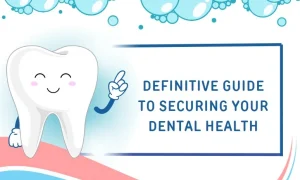You’re casually making a salad when you happen to slice your finger. Not an itty-bitty paper cut but a deep throbbing wound, I may need stitches kind of cut. You know leaving it open and exposed will lead to infection, so you diligently rinse it with some hydrogen peroxide, smear on some antibiotic cream and slap a band aid on it.
The band-aid protects the site of your injury while your body works to patch it back up. You know the cut won’t disappear overnight so that the band-aid will keep out the dirt in the meantime. As a natural part of the process, your cut will scab over. The band-aid keeps the area moist, to slow this down, as a scab can crack, exposing the injury underneath that hasn’t yet healed, leading to more pain and blood.
Our hearts would benefit from an invention like this don’t you think? Emotional abuse leaves deep cuts that need protection while they heal. While I can’t offer you a physical band-aid for those emotional cuts, there are practical tips that can help you recover from emotional abuse.
If you’re reading this blog post, the chances are that you or someone you know has been in an emotionally abusive relationship. The abusers can be anyone. From a partner, a family relative, boss or co-worker. The journey you’ve gone on to deal with this emotional abuse has probably taken a toll on you. Now that you’ve put a stop to it is time to address the aftermath.
1. The Truth
Truth is a powerful weapon that can help the process of healing. Your emotional abuser has heaped so much lies on you that you started to believe them. One of the hallmark traits of abuse is denial. Denial that you were abused, and denial about the pain and damage that was inflicted on you.
So, tell yourself the truth daily and consistently as you go on a journey of healing. The negative thoughts that have infiltrated your mind aren’t real. Let the truth destroy their ability to control you. Let the truth change your mind.
Mahatma Gandhi once said that nobody could hurt him without his permission. He’s right. The words of someone we trusted can cut deep, but it is we who permits their words to do so. So, don’t allow the negative comments and criticisms cloud your mind. Don’t let them tear you down. You were never the problem, they were, so their opinion of you doesn’t matter.
Write out the truth about yourself and put it everywhere with sticky notes if you have to. A sticky note on your bathroom mirror highlights your attractive features, a sticky note on a book you’re reading, reminding you that you are intelligent, and so forth.
2. Friendship and Companionship
Don’t be alone. There are many emotional landmines on your way to recovery and going through this alone is not healthy. Emotional abuse isolates you and makes you think you are alone. You are not. Reach out for professional help, or the help of a trusted loved one. They can help you identify the destructive habits that have formed from the abuse you suffered. It is those who actually love you that shout the truth at you, or whisper it in your ear softly. The truth that you are loved, valuable, intelligent, and strong.
3. Hope
Severe emotional trauma can make you lose all your enthusiasm about your future. You may feel like there is no hope and that it won’t get better. But, like a deep cut, the wound will heal just give it some time. By immersing yourself in the truth and surrounding yourself with people who love you will find your sense of hope returning.
Practice journaling and writing down a list of things you are grateful for on a daily basis. Learning to enjoy each moment will nourish your hope back into shape.
4. Set Boundaries
Boundaries help protect us and what is valuable to us. Depending on who it is that abused you, you will need different boundaries. If it is work or a professional environment, you could report the individual to HR. If it is a close family member, you may need to set boundaries to limit your interaction with them or completely cut them off.
5. Forgiveness
Forgiveness is like the band-aid, keeping the cut moist to prevent it from scabbing over too quickly and then cracking under the strain of everyday activity. It helps lessen scarring as well. Without forgiveness, your emotional wounds may heal, but bitterness and anger remain, lurking and poisoning your health and future interactions.
Choosing to forgive will help you on your journey of recovery. Your life is too short to spend dwelling on the past. Choose to let it go and move on to new relationships, adventures, comfort, and joy that is waiting for you.
Please Share With Your Friends and Family!
Featured Image Courtesy: We Heart It (www.weheartit.com)















